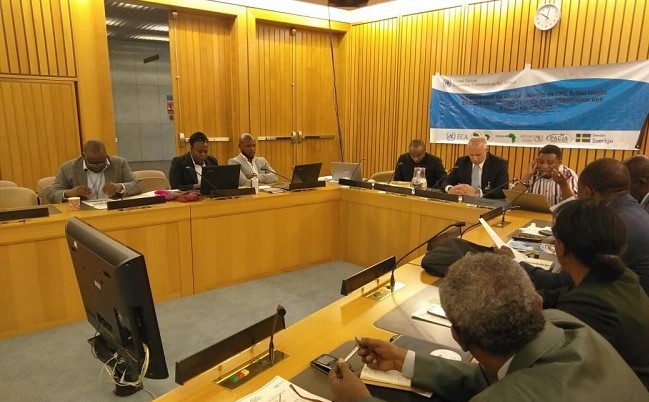A roundtable that held on the sidelines of the 33rd African Union Summit in Addis Ababa, Ethiopia deliberated on what Africa stakeholders should focus on in the light of the Nationally Determined Contributions (NDCs) implementation in 2020.

Despite the summit not fully focusing on climate change, with the overall theme being “Silencing the guns: Creating Conducive Conditions for Africa’s Development”, the Pan African Climate Justice Alliance (PACJA) formed part of a larger team to draw attention to the climate crisis and how it can contribute to a peaceful continent in the shortest time possible.
This, according to officials of PACJA, has been viewed as another way of silencing the gun, as food insecurity, climate related migration and conflict over resources have been key contributors to strife, yet can be managed through adaptation and mitigation.
PACJA Executive Director, Mithika Mwenda, emphasised at the roundtable that held from February 9 to 10, 2020 that CSOs needed to work with governments and ensure maximum access to green climate fund to enable capacity building and ensure maximum addressing of the climate crisis.
“Let us work on the policies that will enable the wellbeing of the African people. Push for the policies that will ensure the right knowledge is imparted to the people to ensure preparedness for disaster and development of adaptive infrastructure for the sake of minimising deaths when disasters strike,” he added.
Mithika spoke on “Countdown to COP26: Main milestones, events and Actors”.
Keynote speaker at the event, Amb Seyni Nafo, who is the Coordinator, African Adaptation Initiative and African Group of Negotiators Spokesperson, said there was a paradigm shift in the COP negotiations, as the African Heads of State wanted to hear about solutions to climate change from the experts.
“The complex geo-political economy is shaping the climate change discourse, where energy is driving investments globally. Translation of important climate decisions into action on the ground in Africa should be emphasised,” he said.
Of key importance for the meeting was how Africa stood to be affected by the decisions made at the COP25 meet in Madrid, Spain in December 2019, and what would be the best way forward.
Africa failed to achieve a special case status at the COP25, and grapples with challenges from finances, technology transfer, infrastructure improvement for the sake of adaptation and mitigation of the climate crisis.
Joseph Masembe, Programme, the Sub-Committee Chair, ACW-2020 National Organising Committee, Uganda, tackled the “Africa Climate Week” topic, laying out key preparations and what should be expected in the April weeklong event.
The other key figures at the roundtable included James Murombedzi, Head of Climate Change (ACPC), ECA; Dr. Alastair McPhail, UK Ambassador to Ethiopia and Permanent Representative to African Union, who tackled “Looking ahead to COP26”; and members of the ECA secretariat, who include Mr Jean-Paul Adam, the Director, Technology, Climate Change and Natural Resources Management, ECA, and Mr Harsen Nyambe Nyambe, Head of Division, Department of Rural Economy and Agriculture, AUC.
The Climate for Development (ClimDev) Africa partners; the African Climate Policy Centre of UN Economic Commission for Africa (UNECA), the African Union Commission (AUC), the African Development Bank (AfDB) and PACJA, hosted the roundtable, which was themed “The Global Climate Crisis and the implications on Africa’s Future”.
